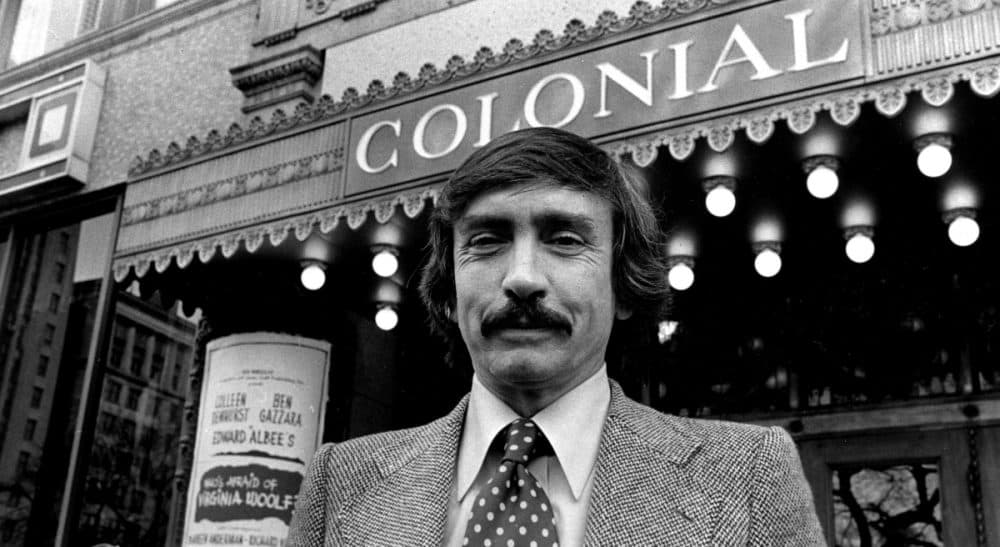Advertisement
Emerson College Take Heed: The Colonial Theatre Matters

As the proud parent of an Emerson College student and a longtime patron of Boston’s magnificent Colonial Theatre, I must confess that Emerson President Lee Pelton’s recent op-ed in The Boston Globe and his half-hearted justification for possibly turning the space into a dining hall left me totally confused.
“It is clear,” he asserted, “that maintaining the Colonial for its intended purpose is no longer viable.”
Really?
According to Variety, Broadway’s 2014-2015 season smashed all-time box office attendance records, attracting more than 13 million patrons who shelled out $1.37 billion (yes, billion) in a 52-week time frame.
Meanwhile, Pelton says “the landscape for theater is undergoing a transformation.” Indeed it is. More people paid more money to see Broadway shows this year than at any other time in the history of the American theater — except, apparently, at the Colonial in Boston.
I for one will need a bit more convincing before swallowing — hook, line and sinker — his argument that the Colonial, as we have come to know and love it, is no longer “viable” because of a “changing landscape.”
Pelton himself admits that it wasn’t commercial producers who shunned the Colonial, but rather the other way around. Still more mystifying, Pelton's oddly proud tone in describing his refusal to renew the lease to a producer who clearly had a greater appreciation for the Colonial’s special place in the constellation of Boston cultural institutions than he.
If Emerson isn’t up to the challenge of owning a cultural landmark in the Athens of America, then they should step aside and let someone else do it.
The Colonial is the oldest continually operating theater in Boston. It opened its doors on Dec. 20, 1900, with a production of "Ben-Hur" complete with eight live horses on stage at full gallop in the chariot race scene — a feat so technically advanced it was featured on the cover of Scientific American.
The world premier of Gershwin’s "Porgy and Bess" took place at the Colonial in 1935. Colonial theatergoers were among the first to see Rogers and Hammerstein's "Oklahoma" in 1943 when the working title was still "Away We Go." The very first audience to see Stephen Sondheim’s groundbreaking musical "Follies," was at the Colonial. Ditto "A Little Night Music." In fact, it was during the Colonial's run of "Night Music" that Sondheim — working between performances in a nearby Boston hotel — penned "Send In The Clowns" for Glynis Johns.
So when Pelton touts Emerson’s “well known commitment to advancing the theater arts in Boston,” while showing virtually no appreciation for the storied history of its most venerable commercial house — whose stewardship is now his exclusive responsibility — the whole tone rings hollow.
Advertisement
By the way, offering up Boston University’s shortsighted decision to boot the Tony Award-winning Huntington Theater Company out of their longtime home as justification for Emerson’s actions, as Pelton tacitly does in his piece, is worse than ridiculous. It's insulting. And speaking of the now-homeless Huntington, Emerson should offer them the Colonial. If Boston’s colleges — which pay no property taxes -- can’t even be counted upon to maintain some of the city’s most cherished cultural institutions, then who can?
It doesn’t take a Rhodes Scholar to understand fiscal reality. Which is why it is hard to square Mr. Pelton's doomsday scenarios with the fact that more people bought tickets to Broadway shows this year than the combined home attendance of every single professional sports team in the New York tri-state area. Newsflash: People are going to the theater.
If Emerson isn’t up to the challenge of owning a cultural landmark in the Athens of America, then they should step aside and let someone else do it. But chopping it up into some developer’s idea of a glorified college cafeteria with a so-called inspiring “front porch” on Boylston Street is not an option.
